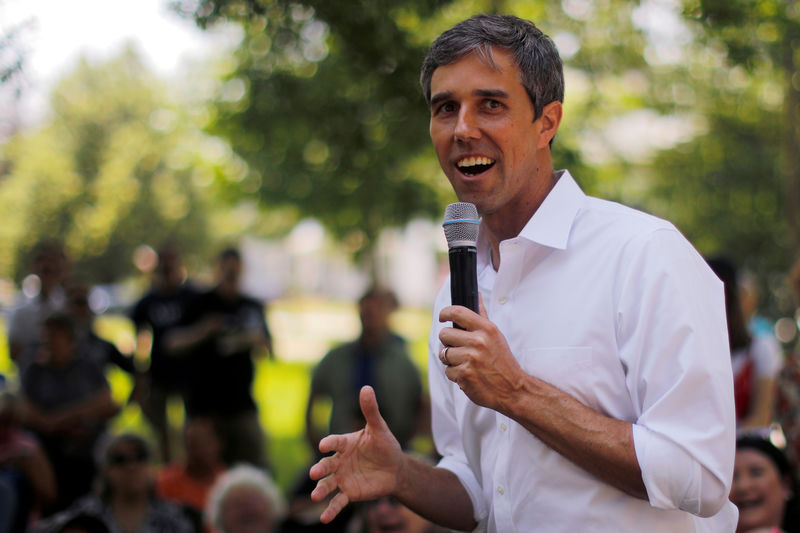By Sharon Bernstein and Ginger Gibson
(Reuters) - Former Democratic U.S. Representative Beto O'Rourke raised a lackluster $3.6 million for his struggling presidential campaign in the second quarter of the year, his campaign said on Monday.
The fundraising haul was a warning sign for the Texas politician and a stark drop in campaign cash after he raised more than $9 million in two weeks the previous period.
"That’s not the kind of number you want to see right now," said Karen Finney, a Democratic strategist unaffiliated with a 2020 campaign. "His campaign may be in trouble,” she said.
O'Rourke, who entered the race after gaining national prominence in his failed 2018 bid for the U.S. Senate from Texas, has failed to gain traction in opinion polls.
Some two dozen Democrats are vying for their party's nomination to challenge Republican President Donald Trump in the November 2020 election. The crowded nominating contest will require candidates to spend millions of dollars to be competitive.
U.S. Senator Cory Booker reported on Monday he raised $4.5 million in the three months ended June 30.
Booker's haul, nearly a quarter of it raised in the four days after his strong appearance in the party's first debate last month, lagged those of other Democratic contenders, including front-runner Joe Biden and South Bend, Indiana, Mayor Pete Buttigieg, who each raised more than $20 million.
U.S. Senator Bernie Sanders raised $18 million in the second quarter.
U.S. Senator Elizabeth Warren brought in $19 million and spent $11 million, according to the report her campaign filed on Monday to the Federal Election Commission.
Senator Amy Klobuchar raked in just under $4 million. Senator Kamala Harris, who has traded places with Warren as voters' third and fourth choices in recent polling, said last week her campaign had raised $12 million.
By comparison, Trump and the Republican National Committee said they raised $108 million for Trump's re-election campaign.
Trump made the unprecedented move to file for re-election the day he took office on Jan. 20, 2017, allowing him to spend the past two years building his re-election operation.

Candidates are required under federal law to disclose their donors and campaign expenses. The latest reports cover the second quarter of the year, which ended on June 30.